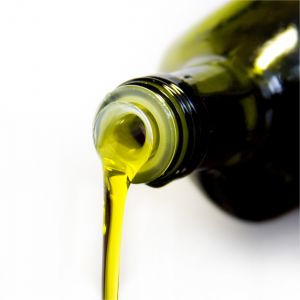 I’ve eaten pretty healthfully for a number of years, though I don’t claim to be any kind of zealot about it and I certainly don’t hassle my friends when we sit down to dinner.
I’ve eaten pretty healthfully for a number of years, though I don’t claim to be any kind of zealot about it and I certainly don’t hassle my friends when we sit down to dinner.
It’s been to the benefit of my health to gradually adopt a diet that is more veggies than meat, more white meat than dark, mostly skip the dairy, easy on the sugar (including the hidden kind), very little processed food.
I don’t remember the last time I ate a fast food burger — they disagreed with me over a decade before Super Size Me, Fast Food Nation or Our Daily Bread hit movie theatres.
In more recent years I’ve moved along the healthy eating continuum to organic fed, free range eggs and buying even less meat, making the choice for organic or natural rather than traditionally raised and slaughtered when I do. (If you want to know more on the why’s for organic and naturally raised meat, check out Fast Food Nation, Our Daily Bread and King Corn to get you started.)
Just What Constitutes Healthy?
Most recently, I’ve been learning more about the fats dilemma. I don’t mean the trans-, saturated, hydroginated, monounsaturated, polyunsaturated, blah, blah, blah fat dilemma. That’s kind of old news. No, what has me alarmed is what hasn’t yet made the 6 o’clock news.
I already knew olive oil is “good” and that “cold-pressed” and stored in a dark bottle is “better” but I was hazy on the why and wherefore. As part of a nutrition program I recently took in, I learned why. Plus a few additional facts that have given me serious pause. In layman’s terms:
- The perfect, beautiful, clear, yellow oils we all grew up eating are processed at high heats which makes them go rancid; they must then be chemically bleached and deodorized.
- All fats are fragile. They easily turn nasty (break down and become unhealthy) in heat, so it’s important to cook them below their smoke point.
- Many fats quickly go rancid when exposed to heat, light and air. It’s best to store them in the refrigerator. (Same with nuts, by the way, of which many oils are made.)
- Animal fats pick up and store trace chemicals like hormones, antibiotics, and pesticides — look out dairy products.
I think what bothers me the most is that the people producing it don’t seem to think anything of the fact that we’ve been eating deodorized, rancid cooking oil for decades. Beyond disgusting.
Healthier Choices
Here are a few things you can do to include truly healthful fats in your diet (a must for overall health):
- Perhaps it’s obvious but it bears repeating: Don’t eat non-food products that masquerade as food but are actually made of chemicals. (For example, check the carton next time you buy ice cream. If it says “frozen dessert” it’s likely a petroleum by-product, not food.)
- Don’t eat oils that are perfectly clear, practically odourless, and stored in plastic. They’re nasty (see first item in initial list).
- Purchase oils that are cold-pressed and stored in dark coloured glass.
- Keep your more fragile oils in the refrigerator or at the very least in a cool, dark cupboard.
- Know the smoke point for the fats you use and stay below them when cooking. Cooking at lower heat for slightly longer is better.
- Use organic butter. You’re worth it.
- Go easy on the dairy and choose organic when you do. Remember, you’re eating what those cows were injected with.
It’s impossible to completely avoid “bad” fats but it’s crazy not to remove them from our diet where and when we can by make small, easy changes to our buying and cooking habits.
Margarine Alternative
As a final tip, if you’re hooked on margarine because it’s so dang easy to spread but you’re rethinking the logic, try 1 part organic butter/1 part olive oil. Bring the butter to room temperature then mix with the olive oil. Refrigerate and use as needed, it spreads like margarine.
